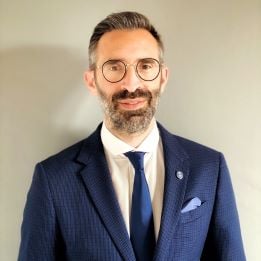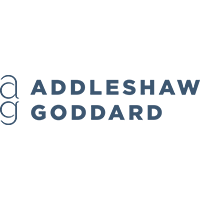

Chief legal officer | Paris Saint-Germain



Julien Letellier
Chief legal officer | Paris Saint-Germain
What are the most significant cases or transactions that your legal team has recently been involved in?
To respond to the club’s new international dimension, we chose to rely on the expertise and solidity of LIDS, the largest licensed sports retailer in North America, to oversee and manage operations for the existing two stores in Paris and club’s new locations in Europe and North America. This follows a strategy of externalisation which started a few years ago with the transfer of a full line of business on e-commerce, licensing and brick and mortar to Fanatics which was handled by the Paris Saint-Germain legal team.
As we enter the next decade, what skills will a corporate legal team need to succeed in the modern in-house industry?
Firstly, a corporate legal team needs to be well staffed and structured to collaborate efficiently with various stakeholders of the company. In this respect, the Paris Saint-Germain legal department has been largely internalised under the impetus of the general secretary, Victoriano Melero, following his arrival in 2017. This strategy has led to the recruitment of specialised in-house lawyers to meet the expectations of the business. I then structured the team to operate like an in-house law firm, with highly agile and responsive skill centres capable of responding to the needs of the business (e.g., sponsoring, retail, corporate, IT, IP). Within this framework, a corporate legal team needs to have a deep understanding of the sector of activity and related business issues and understand the role and tasks of individuals within the company to see how the legal function can help them in decision-making and risk management.
The pandemic situation has also taught us that anticipation, adaptability and creativity are key to problem solving and facing challenges. When it comes to adaptability, an in-house lawyer must be capable to challenge himself by learning cutting-edge areas of law for personal development, added value for their company and consequently, optimise external legal costs, all without sacrificing the skills of external lawyers for specific expertise and litigation. For example, Paris Saint-Germain made a pioneering step into the world of blockchain in 2018, becoming the first sports franchise to partner with Socios.com to launch $PSG Fan Tokens which, later, have been used in Lionel Messi’s welcome package when the player joined the club. This required us to develop expertise in new subjects, and to be avant-gardist and creative, given the many grey areas that existed at the time.
Lastly, a good in-house lawyer needs to show exemplarity within the company by demonstrating integrity and ethical behaviour.
Have you used AI in your day-to-day work? If so, how useful do you find it?
The club is currently experimenting AI monitoring software whose algorithms offers a very wide and efficient scan of counterfeit products on existing marketplaces. Thanks to machine learning and AI technology, the software currently used by the club has acquired a deep knowledge of the different categories of our products, enabling us to set up a very accurate and relevant scan of counterfeit products available for sale on marketplaces which we find to be very useful in our fight against counterfeiting on a larger scale.
Moreover, an in-depth reflection has been carried out by my team to identify AI tools to automate time-intensive legal tasks to focus on higher value-added tasks. Over a dozen companies were consulted by the legal team over the 2022/23 season. These companies presented us with a range of contract management and artificial intelligence tools, some of which could significantly improve contractual support by enabling contract analysis and comparison based on practice, contract profiles and typology. Even though we did not yet find the unicorn, we are convinced that AI could be a game changer and that this technology could save time, enabling in-house lawyers to be more efficient but also optimising external legal costs.
How do you suggest in-house lawyers build strong relationships with business partners?
In-house lawyers can build strong relationships by demonstrating availability, adaptability, responsiveness and earn respect from internal partners by giving clear advice while always trying to show that the legal function is not an obstacle to business, but a means of supporting it.
Chief Legal Officer | Paris Saint-Germain